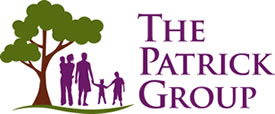 |
Serving all of Puget Sound |

Functional Family Therapy (FFT) is a strength based therapy model intended primarily for youth ages 11 to 18 years old exhibiting behavioral and/or emotional problems. FFT is a relatively short-term intervention consisting of 12 to 14 sessions over a three to five month period of time. FFT is designed to address risk and protective factors associated with adolescent adaptive development. FFT services are conducted in both clinic and home settings; services can also be provided in schools, child welfare facilities, probation and parole offices/aftercare systems, and mental health facilities as appropriate. FFT consists of five major components, each with its own goals, focus, and intervention strategies and techniques.
The first component of FFT is “Engagement.” The goal of this phase is to develop rapport with family members by actively engaging with families in a culturally competent, strength-based manner. Activities include high availability, telephone outreach, appropriate language and dress, contact with as many family members as possible, "matching," and a respectful attitude.
The second component of FFT is “Motivation.” The goal of this phase is to create hope of a positive future within the family by decreasing family blame, conflict, and hostility. Activities include the interruption of highly negative interaction patterns, changing meaning through a strength-based relational focus, identifying reoccurring themes associated with behaviors, identifying motives for behavior, and validating well intended behaviors, while also identifying potential unintended consequences associated with the behavior.
The third component of FFT is “Relational Assessment.” The goal of this phase is to identify how the interpersonal needs of each family member are being met through their interaction patterns within the family. Activities include therapist observation and questioning, brainstorming potential functions associated with negative behaviors, and switching from an individual problem focus to a relational perspective. This phase sets the stage for planning in Behavior Change and Generalization, where all interventions are matched to the families' relational functions.
The fourth component of FFT is “Behavioral Change.” The goal of this phase is to develop positive family functioning and promote individual skill development; typically, evidence-based cognitive-behavioral strategies and techniques are used to accomplish this goal. Activities include modeling and prompting positive behavior, providing directives and information, and developing creative programs to change behavior.
The fifth, and final, component of FFT is “Generalization.” The goal of this phase is to find innovative ways to apply the skills developed during the behavioral change phase to not only maintain positive family functioning, but to extend to other areas of functioning such as the school, community, and work systems. Activities include getting to know the community, developing and maintain contacts outside the family, identifying support systems, creating relapse prevention plans, and helping the family develop independence.
Contact us today for more information about Functional Family Therapy services for your family.